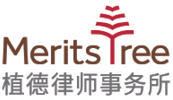The Notice on Matters Concerning the Adjustment of the Classification of Trust Business has been sent to trust companies, classifying trust business into three categories (asset management trust, asset service trust and public benefit/charitable trust) from three dimensions including trust purpose, trust establishment mode and trust property management content.

Partner
Merits & Tree Law Offices
Compared with the previous draft for comment, the above-mentioned notice is particularly important for its amendments to the content of wealth management trustee service trust business (wealth management trust) under the item of asset service trust. The introduction of this new regulation has pointed out the direction of the current classification standards and the boundary between family trust and family trust-like business in the trust industry.
Prior to the notice, the main regulatory basis for trust companies to carry out family trust business was the Notice of the Trust Institution Supervision Department of CBIRC on Strengthening the Trust Supervision during the Transitional Period of Regulating Asset Management Business (the No. 37 notice). The No. 37 notice clearly introduced the concept of family trust for the first time and defined the boundary of family trust business from the perspective of trust purpose, scale of trust property and scope of beneficiaries.
The purpose and background of the No. 37 notice were to clarify that family trusts and charitable trusts are exempt from the new regulations on asset management, and to ease the restrictions on trustees’ management and use of the trust property of family trusts. With the continual development of the family trust business, the mere regulation of the No. 37 notice cannot provide sufficient guidance for wealth management trust businesses with family trusts as their typical business.

Associate
Merits & Tree Law Offices
In practice, different interpretations have emerged regarding some key concepts of the No. 37 notice, such as the scope of beneficiaries and the point in time when the value of trust property is regulated. Whether and how to carry out some new types of wealth management business have become problems to be solved, specifically including how to determine the nature of a trust business with family trust purpose but with the value of trust property not reaching RMB10 million (USD1.4 million), and whether loans can be provided externally under family trusts according to the instructions of the settlor or relevant obligee.
The notice clarifies the above-mentioned issues from different levels and perspectives, and provides new classification standards for family trust-like businesses that could not be classified as family trusts before, which will facilitate the development and popularisation of family wealth management trust business and the public’s understanding of it.
Specifically, the new classification of wealth management trust business mainly presents the following features:
-
- The business classification is more refined and differentiated, which is reflected in the specific clarification of the scope of the trust parties of each type of wealth management business and the differentiation of the entry thresholds in combination with different business characteristics; and
- The trust purposes of each type of trust business are differentiated with enumeration plus exclusion, and it is made clear that a trust business with the main trust purpose of simply pursuing the preservation and appreciation of trust property, the nature of special account management and the attribute of asset management is not a family trust.
The wealth management business matrix of trust companies can be divided as follows.
-
- Settlors are divided into three categories: (i) single personal settlor (new insurance trust, will trust and other individual wealth management trusts); (ii) co-settlor of individuals or family (family trust, special needs trust and family service trust); and (iii) corporate and other organisational settlors (corporate and other organisational wealth management trusts).
- The trust size threshold is divided into four levels: (i) no trust property size requirement (insurance trust, will trust special needs trust); (ii) RMB1 million (family service trust); (iii) RMB6 million (other personal wealth management trusts); and (iv) RMB10 million (family trust, corporate and other organisational wealth management trusts).
To some extent, the new classification standards have solved the categorisation of “family trust-like business” and innovative service trust business in the existing business of trust institutions, which are not provided for in the No. 37 notice. Meanwhile, the addition of categories means new opportunties.
The confirmation of seven sub-categories of current wealth management trusts, including insurance trust, will trust, family service trust, and corporate and other organisational wealth management trusts, indicates the regulatory tendency to the subdivision of various trust business, and is also a recognition of trust companies’ previous transformation, and diversified and differentiated development.
Furthermore, the wealth management trust business is becoming increasingly inclusive and popular. Traditionally, wealth management trust services were considered to be financial and legal services exclusively for high-net-worth individuals, and the family trust was distant and mysterious to ordinary Chinese families.
The new regulation on trust classification adds the category of “family service trust”, including the will trust and the special needs trust, to the category of wealth management trustee services from the perspective of industry regulation, which means that the ideas of retirement trusts, education trusts and new family trusts, which have been innovated on the basis of family trusts and insurance trusts by trust institutions in recent years, have been formally recognised by regulatory authorities and officially confirmed in the form of regulatory documents.
More importantly, the new regulation does not set a threshold for the establishment of a will trust or special needs trust, and significantly lowers the threshold for the establishment of the family wealth management trust through the addition of the family service trust, which enables more ordinary people to enjoy the systematic advantages of trusts.
Besides, it also aligns the establishment and management standards of such trusts to a certain extent and provides a yardstick for trust companies to regulate the related business. The insurance trust, will trust and special needs trust have been and will be the key business for trust institutions to innovate and develop in the future, focusing on the protection of people’s personal safety and health, and dedicated to meeting the basic needs of numerous Chinese families.
The notice fully reflects the core reform requirements that trust companies should engage in trust business based on their trustees’ positioning, respond to the needs of the public and adhere to the original intention of trusts.
Ouyang Fangfei is a partner and Wu Xinghan is an associate at Merits & Tree Law Offices

Merits & Tree Law Offices
5, 12/F, Raffles City Beijing Office Tower
1 Dongzhimen South Street, Beijing 100007, China
Tel: +86 10 5650 0900
Fax: +86 10 5650 0999
E-mail: fangfei.ouyang@meritsandtree.com
xinghan.wu@meritsandtree.com




























